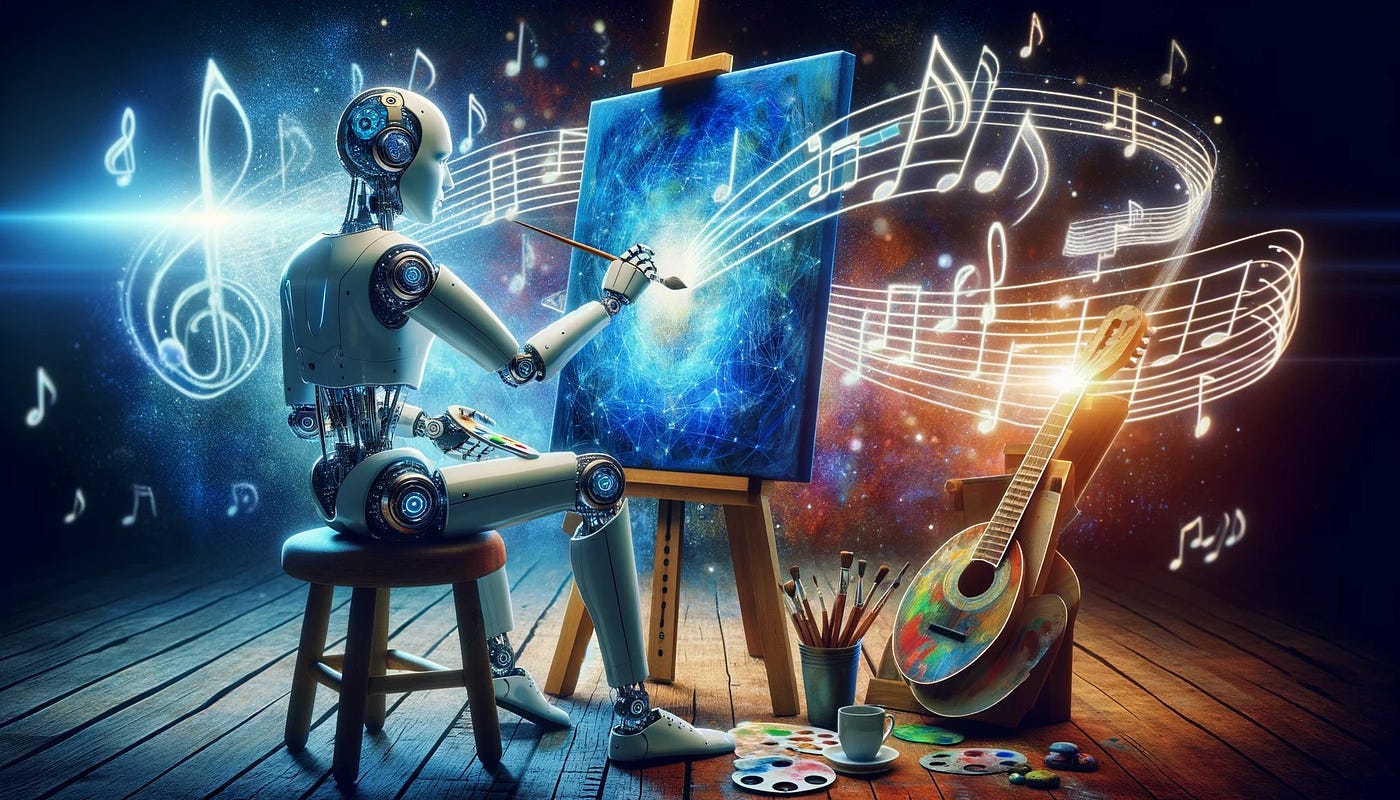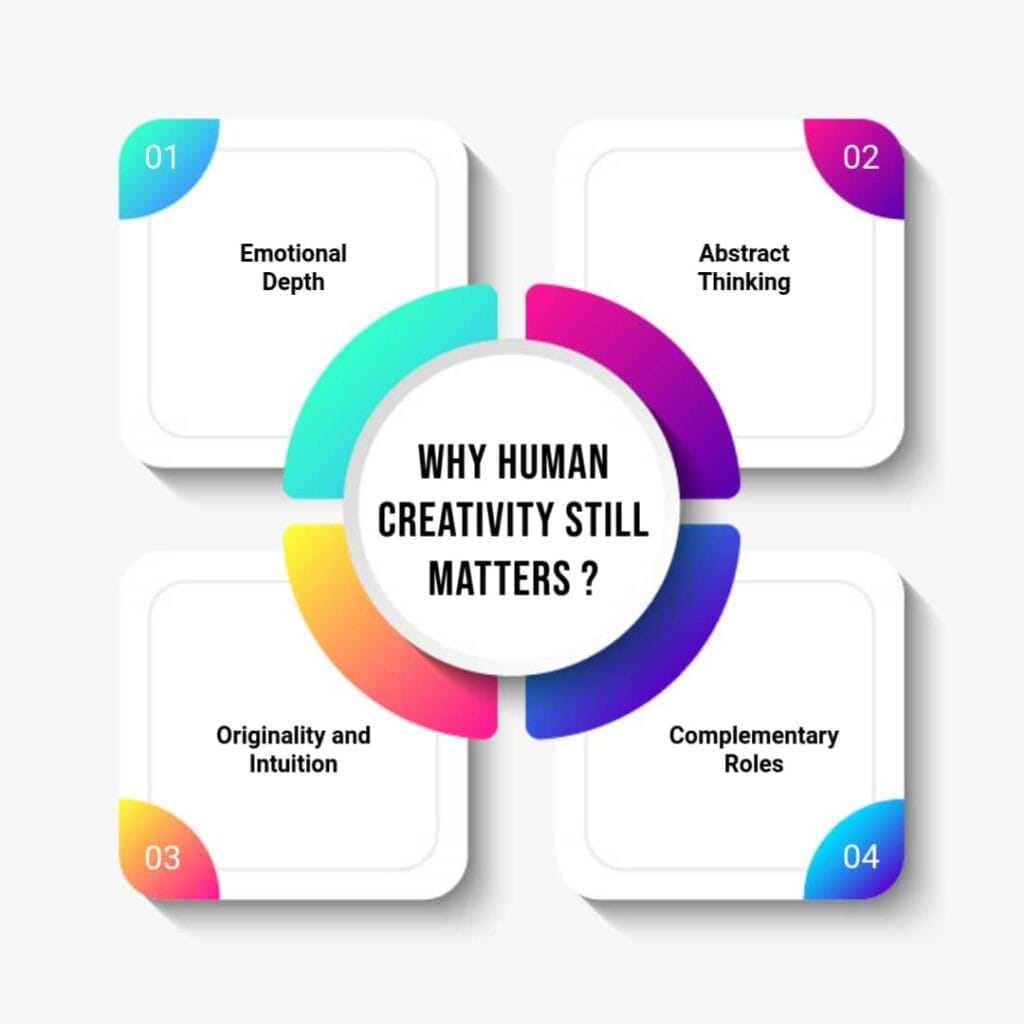In today’s rapidly evolving world, the debate between artificial intelligence vs human intelligence is transforming how we create, innovate, and interact with technology. The pressing question is: Will artificial intelligence surpass human intelligence in creativity and innovation? While AI continues to revolutionize industries such as content creation, design, and media, human intelligence remains unique in its emotional depth and intuitive understanding. This blog delves into the ongoing comparison between artificial intelligence and human intelligence, exploring how AI is impacting creative industries and what the future holds for innovation.
What is Artificial Intelligence and How Does It Function?

Image Credits: incubator
- Defining Artificial Intelligence: Artificial intelligence refers to machines and algorithms capable of performing tasks typically requiring human intelligence, such as problem-solving, learning, and creative processes.
- What Makes AI Different from Human Intelligence?: While AI functions based on data and predefined algorithms, human intelligence is shaped by emotions, experiences, and abstract thinking. This makes human creativity unpredictable and unique.
- The Evolution of Artificial Intelligence: The journey of artificial intelligence has taken leaps forward, from simple automation systems to complex machine learning algorithms that now handle creative tasks with surprising effectiveness.
- Key Milestones in AI Development: Significant moments like IBM’s Deep Blue defeating chess champion Garry Kasparov in 1997, and the recent advancements of AI models like GPT-4, have highlighted how far AI has come. Today, AI systems are generating content, music, and art with impressive speed.
AI’s Role in Creative Industries: Can It Replace Human Innovation?

Image Credits: Generative AI
- AI’s Influence on Content Creation: Artificial intelligence is increasingly used in content creation, automating tasks such as writing, video editing, and even generating visual designs. This shift is helping creators streamline their processes and produce content faster.
- How AI Is Transforming the Media Industry: AI-driven tools are being utilized to generate articles, videos, and even graphics. As a result, the media industry is seeing faster production times and lower costs, but this also raises concerns about the creative quality.
- AI in Art and Design: Friend or Foe?: While some see AI’s involvement in the art and design world as a threat to human jobs, others view it as a helpful tool. AI-generated art offers new possibilities, blending data with creativity.
- Examples of AI-Generated Art: Notable examples of AI-generated art include works from systems like Google’s DeepDream and OpenAI’s DALL·E. These creations challenge our understanding of what constitutes true creativity. Need to highlight the point here, The images featured throughout this blog, including the main image, have been generated using advanced AI tools.
The Human Advantage: Why Human Creativity Still Matters

- What Sets Human Creativity Apart from AI?: Human creativity stems from emotions, experiences, and an ability to think abstractly. While AI can analyze data, it struggles to replicate the depth of human intuition and emotion.
- The Role of Emotions and Experience in Creativity: Human creativity is deeply tied to our emotions and life experiences. We create art and ideas that resonate on a personal and emotional level, something AI has yet to master.
- Can AI Replace Human Creators in the Future?: Although AI has proven capable of performing certain creative tasks, replacing human creators entirely seems unlikely. Human intuition, emotional expression, and originality are difficult for AI to mimic.
- Balancing AI Efficiency with Human Innovation: AI offers efficiency in repetitive tasks, but human creativity provides innovation and emotional depth. A balance between the two might be the future of creative industries.
The Future of Innovation: AI and Human Collaboration

Image Credits: sumsung
- How AI Can Enhance Human Creativity: Rather than overtaking human creativity, AI has the potential to enhance it. By automating routine tasks, AI can free up time for creators to focus on innovation and original thinking.
- Human-AI Collaboration in Creative Fields: Many industries are beginning to see AI as a collaborative partner rather than a competitor. By using AI tools, creators can streamline processes while maintaining a human touch in their work.
- Will AI Eventually Overtake Human Innovation?: The prospect of AI completely overtaking human innovation remains a topic of debate. While AI can analyze vast amounts of data and suggest improvements, true innovation may still require human insight and intuition.
- How Close Are We to AI Surpassing Human Creativity?: Although AI continues to evolve, surpassing the full scope of human creativity seems distant. The emotional and intuitive aspects of creativity are challenging for AI to replicate.
FAQ’s
Yes, artificial intelligence can learn and adapt through machine learning algorithms. However, AI learning is based on data, patterns, and programming, while human learning is influenced by emotions, intuition, and experiences, making human adaptation more dynamic.
AI is often more efficient than humans in tasks that require data processing, pattern recognition, or repetitive actions. However, in tasks requiring creativity, emotional intelligence, or complex problem-solving, human intelligence generally remains superior.
There are concerns that AI could replace jobs, particularly in industries where automation is possible. However, ethical debates also center on privacy, bias in AI algorithms, and the potential loss of human creativity and decision-making in the future.
While AI is advancing rapidly, surpassing human intelligence entirely is unlikely in the near future. AI lacks the emotional depth, intuition, and abstract thinking that define human intelligence, which are vital to areas like creativity, empathy, and moral judgment.
Conclusion:
In conclusion, the race between artificial intelligence vs human intelligence presents both challenges and opportunities. While AI continues to evolve and demonstrate remarkable capabilities, human intelligence maintains its unique strengths in creativity and emotional understanding. The future of innovation will likely involve a collaboration between the two, where AI serves as a powerful tool to enhance human creativity rather than replace it. By embracing the strengths of both artificial intelligence and human intelligence, we can navigate this exciting landscape and foster a future where innovation thrives.
Visit zynicon for more blogs like this!
Hi, I’m Aditya Rathod, a tech content creator and the founder of Zynicon.com.
At Zynicon, I publish clear, practical, and experience-driven content focused on technology, apps, gadgets, AI tools, and emerging digital trends. My goal is to simplify fast-evolving tech topics and present them in a way that is easy to understand, reliable, and genuinely helpful for both beginners and tech enthusiasts.
I actively explore new tools, test apps and devices, and research digital features to ensure every guide and tutorial is written manually, fact-checked, and based on real-world usage. Rather than using hype or jargon, I focus on clarity, accuracy, and usefulness so readers can make informed decisions with confidence.
Through Zynicon, I aim to build a trusted knowledge platform where users can stay updated with technology, discover useful solutions, and learn at their own pace—without confusion or misleading information.
Thank you for being part of the Zynicon community and taking the time to read my work.